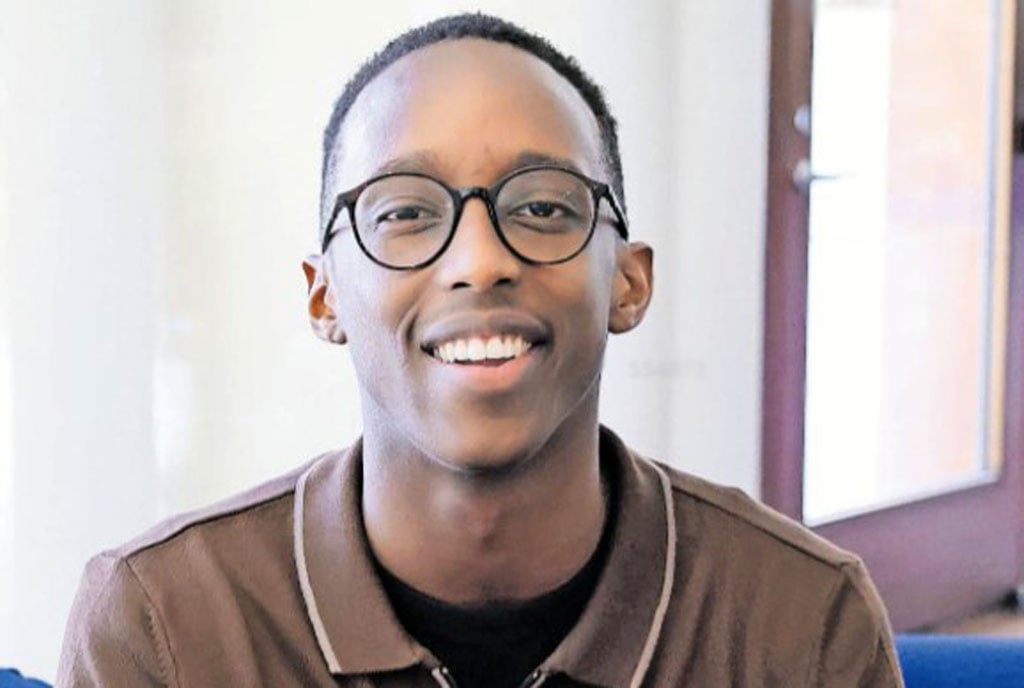Prime
Make a date with experts at Seeds of Gold clinic

Crop scientist explains the agronomy of highland maize during the 17th edition of the Seeds of Gold Farm Clinic in Lira recently. Like in Lira, farmers in eastern Uganda will this morning get latest skills in growing maize. pHOTOs by kelvin atuhaire and lominda afedraru
What you need to know:
The stage is set as the last round of the 2019 Seeds of Gold Farm Clinic gets underway in eastern Uganda at Buginyanya Zonal Agricultural Research Institute. The topics to be covered today include various farming techniques, growing agribusiness and pest control methods. Previous clinics this year have been held in Hoima, Masaka, Mukono and Lira, writes Lominda Afedraru.
Seeds of Gold Farm Clinic
Venue: Buginyanya Zardi
Date: Saturday, December 7
Key enterprises: Wheat, Maize, Banana, Fish & Horticulture
Theme: Climate Smart Farming
Topics: Agribusiness, Crop Management and health, post-harvest handling and species
Free: Lunch & breakfast included
The 18th Seeds of Gold Farm Clinic is taking place today at Buginyanya Zonal Agricultural Research Institute under the theme Climate Smart farming.
Farmers will be taken through the commodities being handled at the institute by science experts with various experience in agricultural science. Below are the details.
Livestock farming
Farmers will this morning learn about sourcing quality feeds for livestock in required quantities during the dry season which is a major challenge to farmers due to increased variability in climate.
They will learn about how to prepare grass to be used in making hay which must be cut before the seed heads appear.
This is because when plants become too old they lose their nutritive capacity and the proportion of indigestible material increases.
Farmers will be taken through the aspects of whether pasture legumes such as lab lab, desmodium spp, glycerine which are nutritious, can make good quality animal feeds.
Other areas of interest is whether all livestock species can be fed on hay.
Only ruminants which depend on pastures or grass as a major source of energy and protein as well as vitamins and minerals can be fed on hay. Ruminants include cattle, goats and sheep.
Fish farming
Expertise emphasis will be on aquaculture (fish farming) specifically on use of fertiliser and synthetic materials that are used in fish production systems.
This includes techniques used right from construction of the fish pond to fish breeding and harvesting.
Fertiliser can be inorganic containing only mineral nutrients and non organic matter manufactured in industries. Organic fertilisers, on the other hand contain a mixture of organic matter and mineral nutrients produced locally from farm waste.
Other areas of concern are what farmers can do when preparing fish ponds for table fish production. Also, what to consider when planning the fertilisation of the fish in ponds.
Highland banana
Experts will take farmers through highland banana growing technologies. These will include best practices such as site selection, site preparation, planting and management, weed management, pests and disease management and harvesting, including variety selection.
Irish potatoes
Emphasis will be put on best agronomy practices and more so about warehouse storage, which emphasises storage of quality potato which begins right from the field during the growing process.
If any potatoes are rotting, damaged or coming from diseased fields, these potatoes must be eaten or sold at harvest. During the growing season, mark areas infected with bacterial wilt to avoid storing potatoes harvested from these infected areas.
Wheat and barley
Scientists will take farmers through the agronomy and best practices of growing wheat and barley, which are basically temperate crops. In Uganda wheat and barley is majorly grown in the districts of Kisoro, Kabale, Kapchorwa, Sironko and Mbale.
Farmers will learn about the cropping season which is twice a year with the first from March to July and the second from August to December.
Altitude plays an important role in the distribution of wheat production through its influence on rainfall, temperature, and diseases. Soil types preferred for wheat production are well-drained fertile soils. Farmers today will be sensitised on the importance of growing varieties resistant to UG99 disease.
Arabica coffee
In eastern Uganda, farmers are known for growing Arabica coffee. Experts will take them through the major diseases such as coffee wilt disease (CWD), which affects Uganda’s number one cash crop.
They will be sensitised on symptoms and how farmers can detect these diseases and pests.
Highland maize
Farmers in eastern Uganda particularly living in the highlands of Sebei and Bulengeni grow highland maize varieties which grow in one season.
Experts will take farmers through which varieties to adopt in order to obtain high yields. Also best agronomy practices as well as post-harvest handling methods that minimise loss.
Lawrence Owere (PhD).
Lawrence Owere is the Director of Research Buginyanya Zonal Agricultural Research and Development Institute (Buginyanya ZARDI).
He holds a PhD in Plant Breeding from the University Of KwaZulu Natal South Africa, a Masters’ of Science and Bachelors’ degrees from Makerere University.
He has attended a number of trainings both within and out of the country including among others; advanced courses in biometry, leadership, financial management and intellectual property.
He brings 20-years’ experience working in agriculture development through his work as agricultural extension officer, senior inspector at the ministry of agriculture animal industry and fisheries (MAAIF), policy formulation on agricultural development.
He leads the development of agricultural solutions in the zone in partnership with both private and public sectors to address challenges in the different commodity value chains. The technologies are also appraised for response to effects of climate change and with a special focus on nutrition. During this Seeds of Gold Farm Clinic, Owere will supervise all the experts.
Brian Owoyesigire
Brian Owoyesigire is a livestock scientist and the programme leader for animal resources research programme at Buginyanya ZARDI. Owoyesigire has more than 15-years’ experience in the agricultural research, education and environmental management.
He has worked on various development projects for major regional and international agencies. Owoyesigire has conducted various research studies in animal nutrition and feeding, breeding and livestock water interactions.
He has also conducted numerous studies on determination of crop and livestock water productivity in rain-fed agro-pastoral systems in the rangelands of Uganda.
He is the current chairperson of Uganda Climate Change Champions Network. He will share his experience on novel innovations of management of dairy breeds with focus on boosting milk production in changing heat stress conditions. Farmers will also learn new smart climate improved technologies especially forages/pastures that are highly nutritive with readily available carbohydrates (RAC) and enhance increased milk production per cow. Farmers will also get seed of such improved pastures.
Constantine Chobet Ondhoro
Constantine Chobet Ondhoro is a research officer at Buginyanya ZARDI and the team leader for Mbale regional fish fry centre.
He holds Masters of Science in Zoology (fisheries and aquatic sciences) from Makerere University; post graduate certificates in general aquaculture, production and Management from Chinese academy of fisheries sciences and the Hebrew University of Jerusalem respectively.
He is an enthusiastic and skilful professional with a demonstrated productive work experience of 15 years in aquaculture research and development activities.
Ondhoro will present experiences customised for high altitude aquaculture practices, including basic principles for cold water fish production.
Arthur Wasukira
Arthur Wasukira is a research scientist and programme leader for agricultural technologies promotion and outreach at the institute.
He works to develop and promote effective low cost widely adaptable crop pest management strategies in eastern Uganda. His expertise includes molecular plant disease diagnosis, project design and management, data analysis and interpretation, and the development and implementation of research tools. “Currently, I am involved in a variety of multi-disciplinary teams on Arabica coffee, potato, wheat, barley and banana development initiatives of skilling farmers to get better yields,” says Dr Wasukira.
Wasukira will take farmers through the agronomy and best management of Arabica coffee as well as eastern Uganda potato value chain.
Dr Frank Kagoda
Dr Frank Kagoda is a Senior Research Officer at Buginyanya ZARDI and the programme leader for crops and natural resources research programme. He is a dedicated and knowledgeable professional with a demonstrated productive work experience of 20 years in agricultural research and development activities. Dr Kagoda will share his experiences on seed production, access to early generation seed and good agronomic practices of key food security crops such as maize, cassava, sweet potatoes and beans.
Bosco Chemayek
Bosco Chemayek, holds a PhD in plant breeding and genetics from the University of Sydney, Australia. His undergraduate and masters’ degrees were obtained from Makerere University. He is currently a research scientist at Buginyanya ZARDI. He is the head of wheat and barley research nationally focussing on development of varieties with adequate resistance to common wheat diseases, barley varieties with excellent brewing qualities, and methods to increase productivity and utilisation for both commodities.




